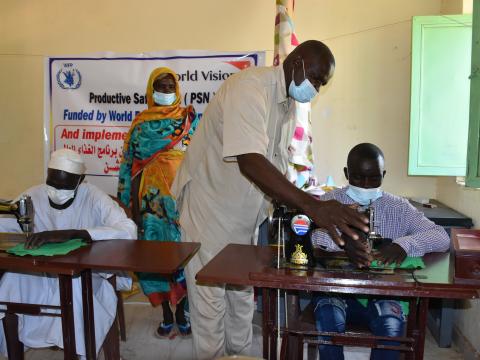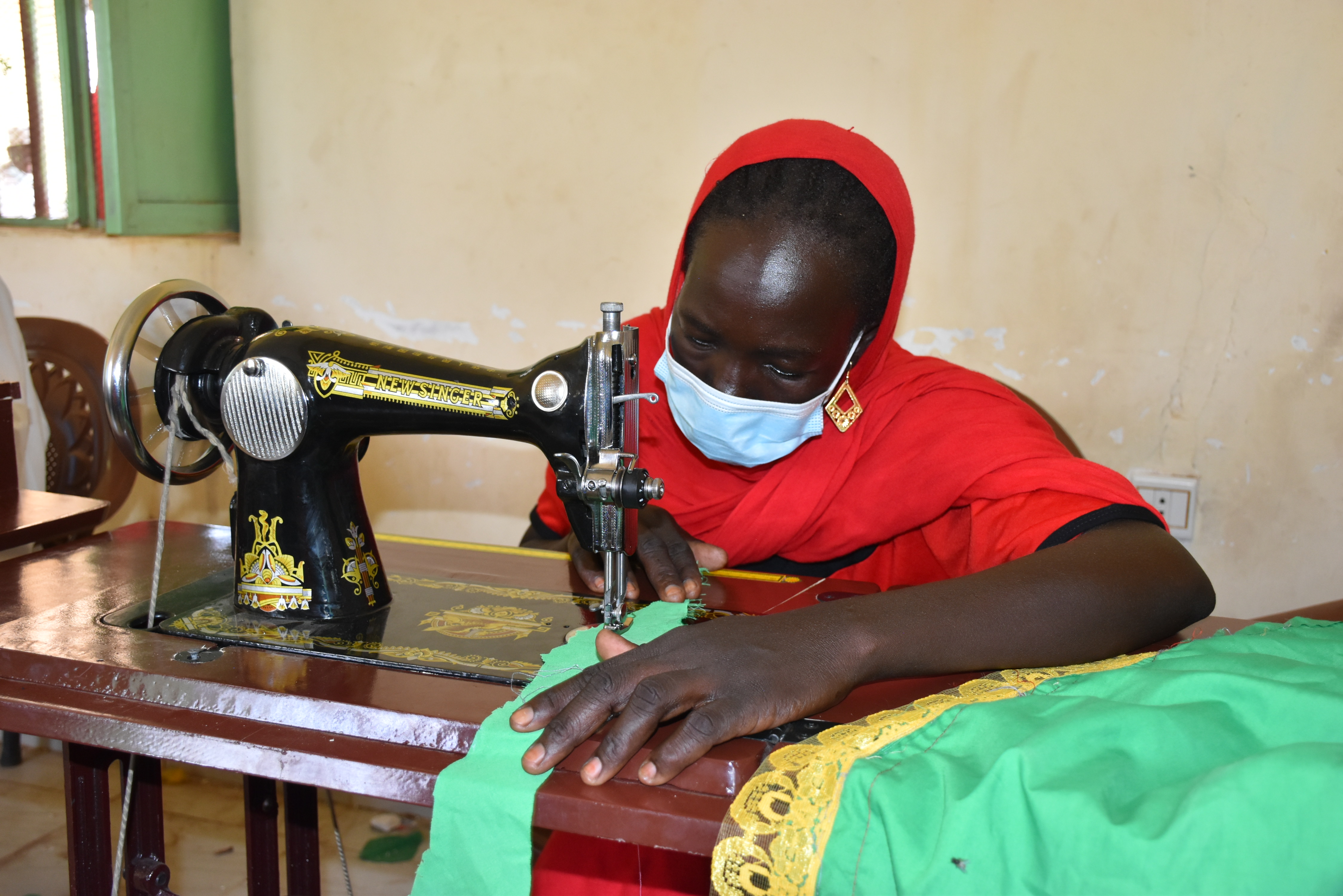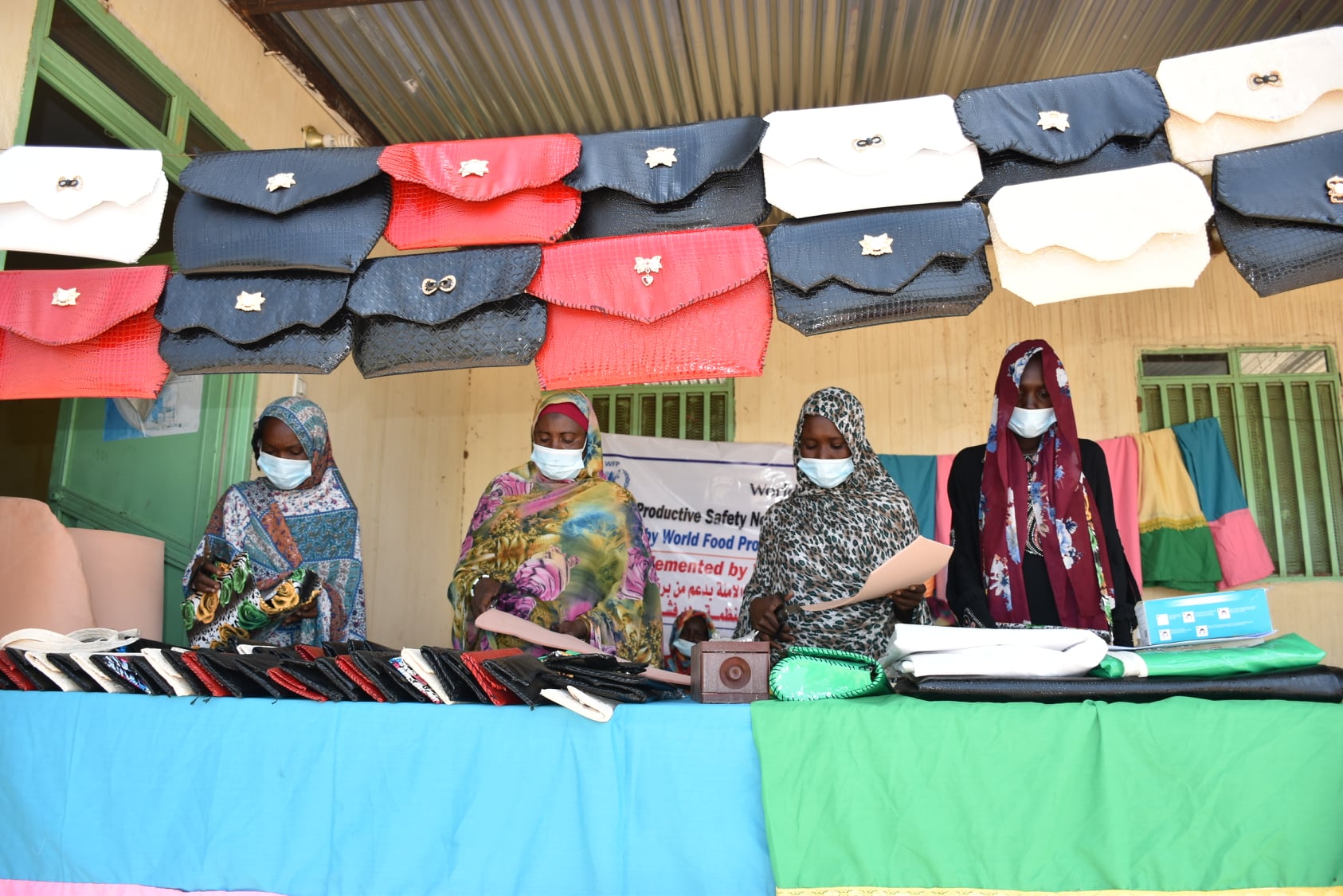World Vision supported livelihood programmes, a major boost for unemployed youth

At 22 years old, Azrin from Otash village in South Darfur is already a family man with great responsibilities. He has enrolled for a tailoring training course at the community centre in Otash village, with one goal in mind: to become a certified tailor.
It is the only formal training he has received in his lifetime, and he is putting all of his hopes on this tailoring training, confident that it will serve as a means of livelihood for his family.
Under the training of instructor Asman Abubakar, the 22-year-old says the training is going well. “In the beginning, I knew nothing at all, but now: “I understand the basics such as: starting the machine, inserting and threading the needle, mock-up stitching,” he explains.
“As long as I attend my lessons every day and pay attention to the instructions, my dreams of becoming a certified tailor and owning my clothes shop will come true,” he says, confidently.

Aziza Abdalla, a mother of six is nearly two weeks into the course. She enrolled because she needed to refresh her sewing knowledge and skills. Upon completion, she plans to set up shop at home, where she can be closer to her children. She’s hoping to diversify her livelihood options.
A majority of us here, rely on small crop farming for sustenance, however this is dependent on the rains, yet there are times in the year when we have no rains. With tailoring we are not be limited by the rains,” Aziza observes.
There are 70 trainees enrolled for tailoring at the community centre run by World Vision, with funding from the World Food Programme. It is part of the Productive Safety Net programme targeting returnees and members of the host community, whose goal is to improve resilience through diversifying livelihoods opportunities.
Programmes, huge boost for unemployed youth
Twenty eight-year-old Tajadin Abdalla says his family’s wellbeing hinges on him becoming a successful tailor. He hopes that tailoring will improve the economic status of his family, and plans to set up his own shop at the local market, once certified.
Abubaker Ali, in his late 40s says he will focus on men’s jellabia (a loose-fitting outfit mostly worn by men). He’s grateful for what the project is doing to support vulnerable youth and other groups in gaining income generating skills.
Five days a week, for two hours the learners come to the centre for practical lessons, under the instruction of Asman, who brings a wealth of decades-long experience in the industry.
Trainer Asman is confident that the learners will quickly grasp the requisite skills, because they are eager and committed to the process. “They are here because they want to and that makes it easier to transfer knowledge as well as work with them,” he observes. Adding that tailoring is a good income generating business since the locality needs more tailors.

The minimum training period is four weeks, after which trainees are examined. Those who pass get certified as tailors and outside of the training centre, they will continue to be monitored by their instructor. Trainees who fail go through the training again.
The trainees seem excited because of the business opportunities the tailoring course could unlock for them, particularly due to the high demand for the service.
Sheikh Adam Abubaker appreciates the initiatives that are being implemented in the Productive Safety Net programme, to support residents of his community.
Besides the livelihood opportunities that have been created for vulnerable youth, men and women he notes that, the project in general has given both host community and returnees a sense of hope. Sheikh Abubaker also notes that the different livelihood options have contributed to enhancing safety for girls and women.

"The Productive Safety Net programme has also contributed to addressing the challenge of unemployment among the youth, keeping them occupied as well as reducing the despair they would normally face, in the absence of such opportunities." Sheikh Abubaker.
He however thinks that the biggest achievement so far has been the contribution of the Productive Safety Net activities’ in bringing returnees and the host community together and by large reducing tensions that were there between these two groups.
Otash village is home to thousands of returnees, most of whom have returned from the Otash camp for internally displaced persons, in Nyala the capital of South Darfur.
Sheikh Abubaker hopes that such programmes will continue to encourage many more families to return home, convinced that those who have returned in recent years may have done so because of the opportunities to rebuild back home.
Before, women and girls went to the bush to collect firewood and the risk they were exposed to out there, was high. Now with the various livelihood activities such as tailoring, handicraft and soap making, that risk has been reduced -Sheikh Abubaker-.
The programme has been running since 2019. More than 3,400 households in South Darfur are currently benefitting from the different activities, including training in tailoring, soap making, handicraft and production of fuel-efficient stoves.
Similar activities are also being implemented in East Darfur state.